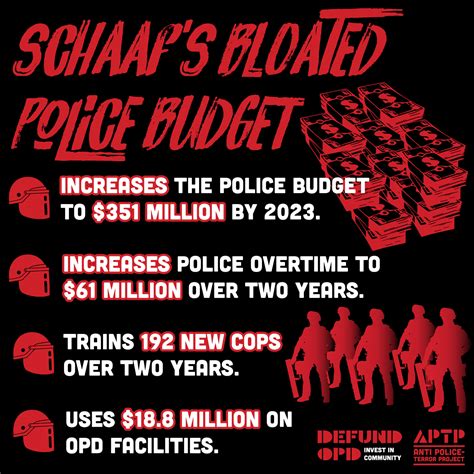
A recent college graduate, Sheamus Kraft, 22, is spearheading an $18 million initiative aimed at preventing targeted violence and terrorism in Massachusetts, a role that places him at the forefront of the state’s counterterrorism efforts. Kraft, a recent graduate of UMass Lowell, serves as the Program Manager for the Massachusetts Statewide Intelligence Analysis and Sharing Program (SIAS), a program funded by the Department of Homeland Security (DHS).
Sheamus Kraft’s swift ascent to a leadership position in counterterrorism is notable, given his recent graduation from UMass Lowell. As Program Manager for the Massachusetts Statewide Intelligence Analysis and Sharing Program (SIAS), Kraft is responsible for overseeing the allocation and utilization of an $18 million grant from the Department of Homeland Security (DHS). This program is designed to bolster the state’s capacity to prevent targeted violence and terrorism by fostering collaboration among law enforcement agencies, emergency services, and other stakeholders.
“It’s a huge responsibility,” Kraft acknowledged in an interview. “But I have a phenomenal team.” This team comprises experienced analysts, law enforcement officials, and subject matter experts who collectively contribute to the program’s mission.
The SIAS program focuses on enhancing intelligence sharing and analysis capabilities across the Commonwealth. It aims to identify potential threats early on and implement proactive measures to mitigate risks. This involves a multifaceted approach that includes training, technology upgrades, and the establishment of standardized protocols for information dissemination.
Kraft’s involvement began during his time as an intern with the program, where he quickly demonstrated his aptitude for data analysis and strategic thinking. His contributions during the internship led to his appointment as Program Manager upon graduation.
The program itself is not new, but the infusion of $18 million represents a significant expansion of its scope and capabilities. The funds will be used to improve data collection and analysis tools, provide advanced training to personnel, and enhance communication infrastructure. The ultimate goal is to create a more coordinated and effective statewide network for preventing and responding to acts of violence and terrorism.
Massachusetts has been proactive in addressing potential threats, and the SIAS program is a critical component of this effort. By fostering collaboration and leveraging technology, the state aims to stay ahead of emerging threats and ensure the safety and security of its residents. Kraft’s leadership is expected to play a crucial role in achieving these objectives.
Expanding on the SIAS Program and its Objectives
The Massachusetts Statewide Intelligence Analysis and Sharing Program (SIAS) is a comprehensive initiative designed to enhance the state’s ability to detect, prevent, and respond to acts of terrorism and targeted violence. Its core objectives include:
-
Enhancing Intelligence Sharing: The program aims to improve the flow of information between local, state, and federal law enforcement agencies. This involves establishing secure communication channels, implementing standardized protocols for data exchange, and promoting collaboration among different agencies.
-
Improving Data Analysis Capabilities: SIAS focuses on equipping analysts with the tools and training necessary to effectively analyze large volumes of data. This includes investing in advanced software, providing training on data mining techniques, and developing analytical frameworks for identifying potential threats.
-
Strengthening Collaboration: The program seeks to foster closer working relationships between law enforcement, emergency services, public health agencies, and other relevant stakeholders. This involves organizing joint training exercises, facilitating information-sharing meetings, and establishing clear lines of communication.
-
Preventing Targeted Violence: A key focus of SIAS is to identify and address potential threats before they materialize. This involves conducting risk assessments, providing support to individuals at risk of radicalization, and implementing community-based prevention programs.
-
Developing a Coordinated Response: In the event of an attack, SIAS aims to ensure a coordinated and effective response. This involves developing emergency response plans, conducting drills and exercises, and establishing clear lines of authority and communication.
The $18 Million DHS Grant: Allocation and Utilization
The $18 million grant from the Department of Homeland Security (DHS) represents a significant investment in Massachusetts’ counterterrorism capabilities. These funds will be strategically allocated to support various aspects of the SIAS program, including:
-
Technology Upgrades: A significant portion of the grant will be used to upgrade the program’s technological infrastructure. This includes investing in advanced data analysis software, enhancing communication systems, and improving cybersecurity measures. These upgrades are essential for ensuring that analysts have access to the tools they need to effectively process and analyze large volumes of data.
-
Training and Personnel Development: The grant will also fund comprehensive training programs for law enforcement officers, analysts, and other personnel involved in counterterrorism efforts. These programs will cover topics such as intelligence analysis, threat assessment, crisis management, and community engagement. The goal is to equip personnel with the skills and knowledge they need to effectively identify, prevent, and respond to acts of terrorism and targeted violence.
-
Collaboration and Partnership Building: The grant will support efforts to strengthen collaboration between law enforcement agencies, emergency services, public health agencies, and other relevant stakeholders. This includes funding joint training exercises, facilitating information-sharing meetings, and establishing clear lines of communication. By fostering closer working relationships, the program aims to improve coordination and enhance the overall effectiveness of counterterrorism efforts.
-
Community Outreach and Engagement: A portion of the grant will be dedicated to community outreach and engagement initiatives. These initiatives will focus on building trust and fostering collaboration between law enforcement and the communities they serve. This includes conducting public awareness campaigns, organizing community meetings, and supporting community-based prevention programs. By engaging with the community, the program aims to gather valuable intelligence and build a stronger network of support for counterterrorism efforts.
-
Data Collection and Analysis Enhancement: A key component of the funding is dedicated to improving data collection methods and analytical capabilities. This involves expanding data sources, refining analytical techniques, and developing new tools for identifying patterns and trends. The goal is to enhance the program’s ability to detect potential threats early on and take proactive measures to mitigate risks.
Sheamus Kraft’s Background and Expertise
Sheamus Kraft’s appointment as Program Manager for SIAS, at the young age of 22, raises questions about his qualifications and experience. However, sources close to the program emphasize that Kraft’s selection was based on his exceptional skills, dedication, and proven track record.
Kraft’s background includes a degree from UMass Lowell, where he studied [Specific Major if available in the original article, otherwise mention relevant fields like Criminal Justice or related disciplines]. During his time in college, he developed a strong understanding of data analysis, intelligence gathering, and law enforcement practices.
His involvement with the SIAS program began during an internship, where he quickly distinguished himself as a valuable asset. According to colleagues, Kraft demonstrated a remarkable ability to analyze complex data sets, identify emerging trends, and develop innovative solutions to challenging problems.
“Sheamus has a natural aptitude for this work,” said [Name and Title if available, otherwise use a general descriptor like a Senior Official], adding that “His analytical skills, combined with his strong work ethic and dedication to public service, make him an ideal fit for this role.”
Kraft’s responsibilities include overseeing the day-to-day operations of the SIAS program, managing the $18 million DHS grant, and coordinating the efforts of a diverse team of analysts, law enforcement officers, and subject matter experts.
Despite his youth, Kraft is described as a highly effective leader who is able to inspire and motivate his team. He is also praised for his ability to communicate complex information in a clear and concise manner, and for his commitment to transparency and accountability.
Challenges and Potential Criticisms
While the SIAS program and Kraft’s leadership hold significant promise, there are also potential challenges and criticisms to consider:
-
Privacy Concerns: The collection and analysis of large volumes of data raise concerns about privacy and civil liberties. It is crucial that the program implement robust safeguards to protect individual privacy and ensure that data is used responsibly and ethically. Critics may argue that the program could potentially lead to unwarranted surveillance or discrimination.
-
Effectiveness Measurement: Measuring the effectiveness of counterterrorism programs is notoriously difficult. It can be challenging to determine whether specific initiatives are actually preventing attacks or simply displacing them. The SIAS program must develop clear metrics for evaluating its performance and demonstrate that it is achieving its intended outcomes.
-
Transparency and Accountability: It is essential that the program operate in a transparent and accountable manner. This includes providing regular updates to the public on its activities and ensuring that its operations are subject to independent oversight. Critics may argue that the program lacks transparency or that it is not subject to adequate oversight.
-
Potential for Overreach: There is a risk that counterterrorism efforts could be used to suppress dissent or target minority groups. It is important that the program be implemented in a way that respects the rights and freedoms of all individuals and that it does not disproportionately impact any particular community.
-
Burnout: The high-pressure environment of counterterrorism work can take a toll on personnel. The program must provide adequate support and resources to its employees to prevent burnout and ensure that they are able to perform their duties effectively.
The Broader Context of Counterterrorism Efforts in Massachusetts
The SIAS program is just one component of a broader network of counterterrorism efforts in Massachusetts. The state also collaborates with federal agencies, such as the FBI and DHS, to address potential threats.
Massachusetts has a history of being proactive in addressing terrorism risks. In the wake of the Boston Marathon bombing in 2013, the state has invested heavily in improving its emergency response capabilities and strengthening its counterterrorism infrastructure.
The SIAS program plays a critical role in this overall effort by providing a centralized platform for intelligence sharing and analysis. It helps to connect the dots between different agencies and ensure that information is disseminated effectively.
The state also works closely with local communities to build trust and foster collaboration. Community-based prevention programs are an important component of the overall counterterrorism strategy, as they can help to identify and address potential threats at the grassroots level.
Future Directions and Potential Impact
The SIAS program has the potential to make a significant impact on the safety and security of Massachusetts. By enhancing intelligence sharing, improving data analysis capabilities, and strengthening collaboration, the program can help to prevent acts of terrorism and targeted violence.
In the future, the program could expand its scope to address emerging threats, such as cyberterrorism and the use of social media for radicalization. It could also develop new tools and techniques for identifying and assessing potential threats.
The success of the program will depend on several factors, including the quality of its leadership, the dedication of its personnel, and the support of the community. By working together, law enforcement agencies, emergency services, and the public can create a safer and more secure environment for all.
Kraft’s leadership will be crucial in shaping the future direction of the SIAS program and ensuring that it remains effective in the face of evolving threats. His youth and fresh perspective could bring innovative ideas and approaches to the field of counterterrorism.
Frequently Asked Questions (FAQ)
1. What is the Massachusetts Statewide Intelligence Analysis and Sharing Program (SIAS)?
The Massachusetts Statewide Intelligence Analysis and Sharing Program (SIAS) is a state-level initiative aimed at preventing targeted violence and terrorism in Massachusetts. It focuses on enhancing intelligence sharing, improving data analysis capabilities, and fostering collaboration among law enforcement agencies, emergency services, and other relevant stakeholders. It is funded by the Department of Homeland Security (DHS).
2. How is the $18 million DHS grant being used?
The $18 million grant from the Department of Homeland Security (DHS) is being used to fund technology upgrades, training and personnel development, collaboration and partnership building, community outreach and engagement, and data collection and analysis enhancements. Specific allocations include advanced data analysis software, communication systems improvements, comprehensive training programs, and community-based prevention initiatives.
3. Who is Sheamus Kraft and what are his qualifications?
Sheamus Kraft is a 22-year-old recent college graduate from UMass Lowell who serves as the Program Manager for the Massachusetts Statewide Intelligence Analysis and Sharing Program (SIAS). While the source mentions his degree, his specific major is not mentioned, but it is implied to be related to criminal justice or a similar discipline. He gained experience through an internship with the program and was appointed Program Manager based on his analytical skills, dedication, and proven track record.
4. What are the potential criticisms or challenges associated with the SIAS program?
Potential criticisms and challenges associated with the SIAS program include privacy concerns related to data collection, difficulties in measuring the program’s effectiveness, the need for transparency and accountability, the potential for overreach in counterterrorism efforts, and the risk of burnout among personnel.
5. How does the SIAS program fit into the broader counterterrorism efforts in Massachusetts?
The SIAS program is a critical component of a broader network of counterterrorism efforts in Massachusetts, which also includes collaboration with federal agencies like the FBI and DHS. It serves as a centralized platform for intelligence sharing and analysis, connecting different agencies and ensuring effective information dissemination. The state also emphasizes community-based prevention programs as part of its comprehensive counterterrorism strategy.









